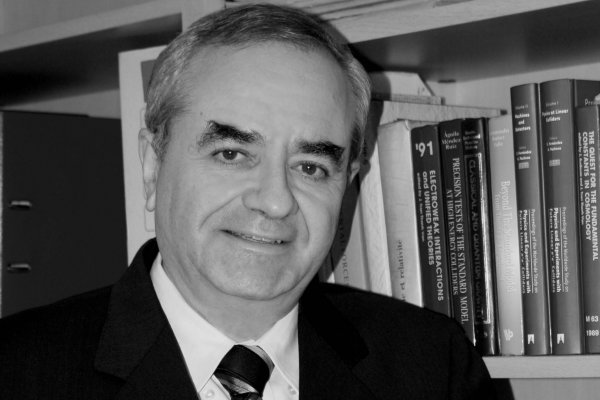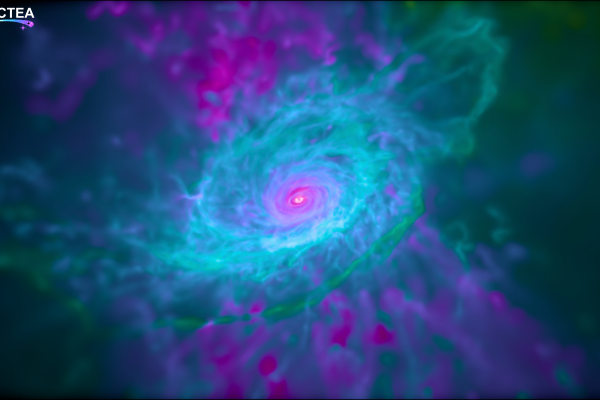Professor Joan Solà Peracaula, senior researcher at ICCUB, has been awarded the Universe Best Paper Award 2023 for his co-authored publication, “Running Vacuum in the Universe: Phenomenological Status in Light of the Latest Observations, and Its Impact on the σ₈ and H₀ Tensions.”
The award, granted annually by the journal Universe (MDPI), recognizes two outstanding papers—one research article and one review—published during the last two years.
The award-winning paper, co-authored by Adrià Gómez-Valent (ICCUB), Javier de Cruz Pérez (U. of Córdoba), and Cristian Moreno-Pulido (U. of Girona)—all former PhD students of Professor Joan Solà at the University of Barcelona—explores a new idea in cosmology called the Running Vacuum Model (RVM). This model offers a fresh way to think about dark energy, the mysterious force believed to be driving the accelerated expansion of the universe. It is based on quantum field theoretical calculations in curved spacetime. The team tested this model using a wide range of the latest astronomical data, including observations on distant supernovae, the distribution of galaxies, and the cosmic microwave radiation left over from the Big Bang. The winning papers have been selected from a pool of 467 publications, based on scientific merit, originality, clarity, and impact, including citations and downloads.
What makes the RVM special is that it treats dark energy not as something fixed (such as the “cosmological constant”), but as something dynamical that evolves with time. In addition, it treats dark energy as quantum vacuum energy, a fundamental concept. This helps explain some puzzling differences in current measurements of how fast the universe is expanding and how structures like galaxies grow. The model even suggests a new way the universe might have rapidly expanded in its earliest moments (i.e. a new model of inflation)—without needing assumptions about exotic particles called “inflatons”. The idea of dynamical dark energy is very fashionable nowadays after the latest observations of the Dark Energy Spectroscopic Instrument (DESI). The RVM aligns with these observations and may provide a quantum field theoretical basis for them.
This award highlights the growing importance of RVM in helping scientists better understand the universe. The first comprehensive tests of the RVM suggesting the existence of dynamical dark energy were performed just 10 year ago (Astrophys.J.Lett. 811 (2015) L14).
As part of the recognition, the authors receive a 500CHF cash prize, a certificate, and a voucher to publish future research for free.
The full announcement by Universe can be viewed here, and the awarded paper is available here.
Reference
Solà Peracaula, J., Gómez-Valent, A., de Cruz Pérez, J., & Moreno-Pulido, C. (2023). Running Vacuum in the Universe: Phenomenological Status in Light of the Latest Observations, and Its Impact on the σ₈ and H₀ Tensions. Universe, 9(6), 262. https://doi.org/10.3390/universe9060262



